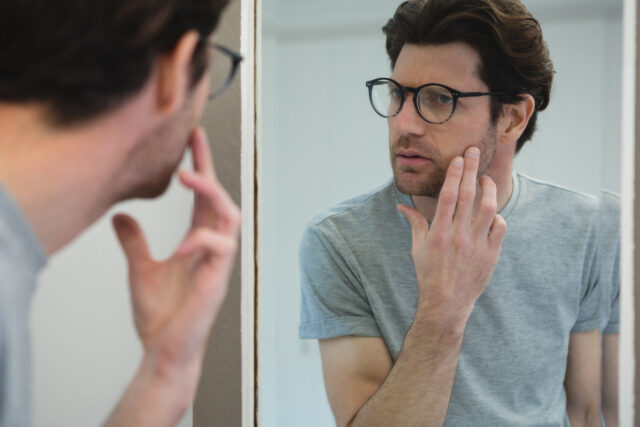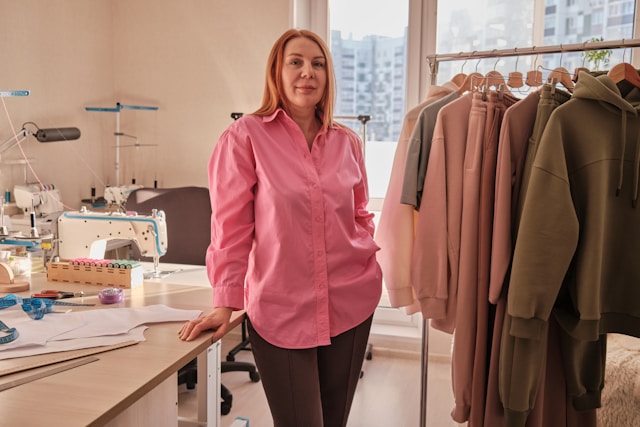Self-confidence is genuinely a good thing, but there’s a fine line between knowing your worth and full-blown vanity.

Vanity, while obnoxious, might seem harmless on the surface, it can actually be a sign of deeper insecurities and a need for constant validation. If you’re wondering if you or someone you know might be a bit too focused on themselves, here are some phrases that might reveal a vain streak.
1. “Do you think I look good in this?”

It’s normal to want to look good and feel confident, but constantly looking for reassurance about your appearance is a clear of vanity. It suggests you’re overly concerned with other people’s opinions and need their validation to feel good about yourself. Trust your own judgment and wear what makes you feel confident and comfortable, regardless of what anyone else thinks.
2. “I can’t believe they didn’t recognise me!”

Feeling a little miffed when someone doesn’t recognise you is understandable, but getting overly upset about it or making it a big deal might indicate a touch of vanity. It suggests you believe you’re so important or memorable that everyone should know who you are. Remember, people have busy lives and might simply be forgetful or distracted.
3. “I always get the best service wherever I go.”

While good service is always appreciated, bragging about consistently receiving special treatment because of your looks or status can be a sign of vanity. It suggests you think you deserve special treatment and that you’re better than everyone else. Sorry to break it to you, but everyone deserves to be treated with respect, regardless of their appearance or social standing.
4. “I’m not like other people.”

This phrase often implies that you’re somehow better or more special than everyone else, which can be a major turn-off. Everyone is unique and has their own strengths and weaknesses. Embrace your individuality without putting other people down or feeling the need to compare yourself to them.
5. “I have so many followers on social media.”

While social media can be a fun way to connect with people, bragging about your follower count or obsessing over likes and comments can be a sign of vanity. It suggests you’re looking for external validation and measuring your self-worth based on your online popularity. Remember, true connections and meaningful relationships are more important than virtual numbers.
6. “I’m so photogenic.”

While there’s nothing wrong with taking an occasional selfie, constantly snapping and posting pictures of yourself can be a sign of vanity. It suggests you’re overly focused on your appearance and trying to get external validation through likes and comments. Try to be more present in the moment and enjoy experiences without the need to document them for social media.
7. “I always get compliments on my [insert physical feature].”

While it’s nice to receive compliments, constantly fishing for them can be a sign of insecurity and vanity. It suggests you need constant affirmation from other people to feel good about yourself. Try to focus on your inner qualities and strengths, not just your physical appearance.
8. “I don’t understand how people can go out without makeup.”
 Getty Images
Getty Images
Everyone has their own preferences when it comes to grooming and personal style. Judging people for their choices, especially when it comes to something as personal as makeup, can be a sign of vanity and insecurity. It suggests you believe your way is the only “right” way and that those who don’t conform to your standards are somehow inferior.
9. “I’m so much better at this than you.”

A little healthy competition can be fun, but constantly putting people down to make yourself feel superior is a clear sign of vanity. It shows a lack of empathy and a need to constantly assert your dominance. Instead of comparing yourself to other people, focus on your own growth and celebrate their achievements alongside your own.
10. “I can’t believe I used to wear that.” (referring to a past fashion choice).

We all have fashion regrets, but constantly putting down your past self for style choices can be a sign of vanity. It suggests you believe your current style is superior and that you’ve evolved beyond your past fashion faux pas. Embrace your fashion journey and remember that everyone has different tastes and preferences.
11. “I’m the only one who knows how to do this right.”

This arrogant statement reveals a belief that your way is the only way. It can be alienating and frustrating for those around you who might have different perspectives or approaches. Be open to learning from people and recognise that there’s often more than one way to achieve a goal.
12. “I deserve the best of everything.”

A sense of entitlement can be a hallmark of vanity. While it’s important to have standards and strive for the best, believing that you deserve special treatment or preferential treatment simply because of who you are can be off-putting. Remember, everyone deserves respect and fairness, regardless of their status or accomplishments.
13. “I’m so popular, everyone wants to be my friend.”

Bragging about your popularity or social circle can be a sign of vanity. It suggests you value superficial connections and external validation over genuine relationships. Focus on building meaningful connections with people who appreciate you for who you are, not for your perceived popularity.
14. “I always get the best tables at restaurants.”

While it might be nice to get a good table occasionally, bragging about it constantly can be seen as pretentious and obnoxious. It suggests you believe you’re entitled to special treatment and that everyone should be impressed by your ability to secure reservations. Instead, focus on enjoying the company of your friends and the food, rather than the status associated with your table.
15. “I’m not really into superficial things.”

This contradiction speaks volumes. If you claim not to care about superficial things, but then constantly talk about appearances, fashion, or material possessions, it can be a sign of vanity. Actions speak louder than words, and your behaviour might reveal more about your values than your words do.
16. “I’m a perfectionist.”

Perfectionism can be a positive trait, but it can also be a mask for vanity and a need for control. If you use your “perfectionism” as an excuse to be demanding, critical, or unwilling to compromise, it might be a sign that you’re more concerned with appearing flawless than with building healthy relationships or achieving meaningful goals.





